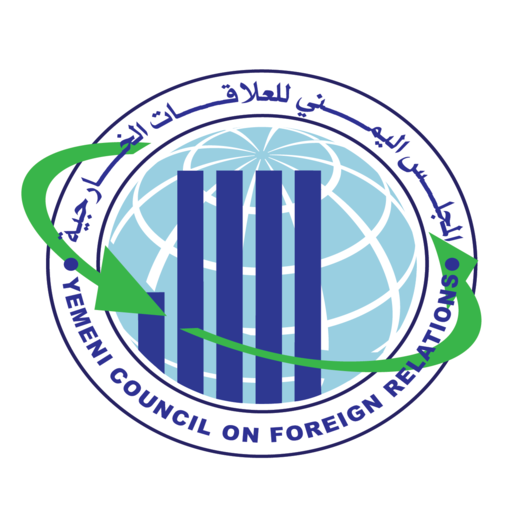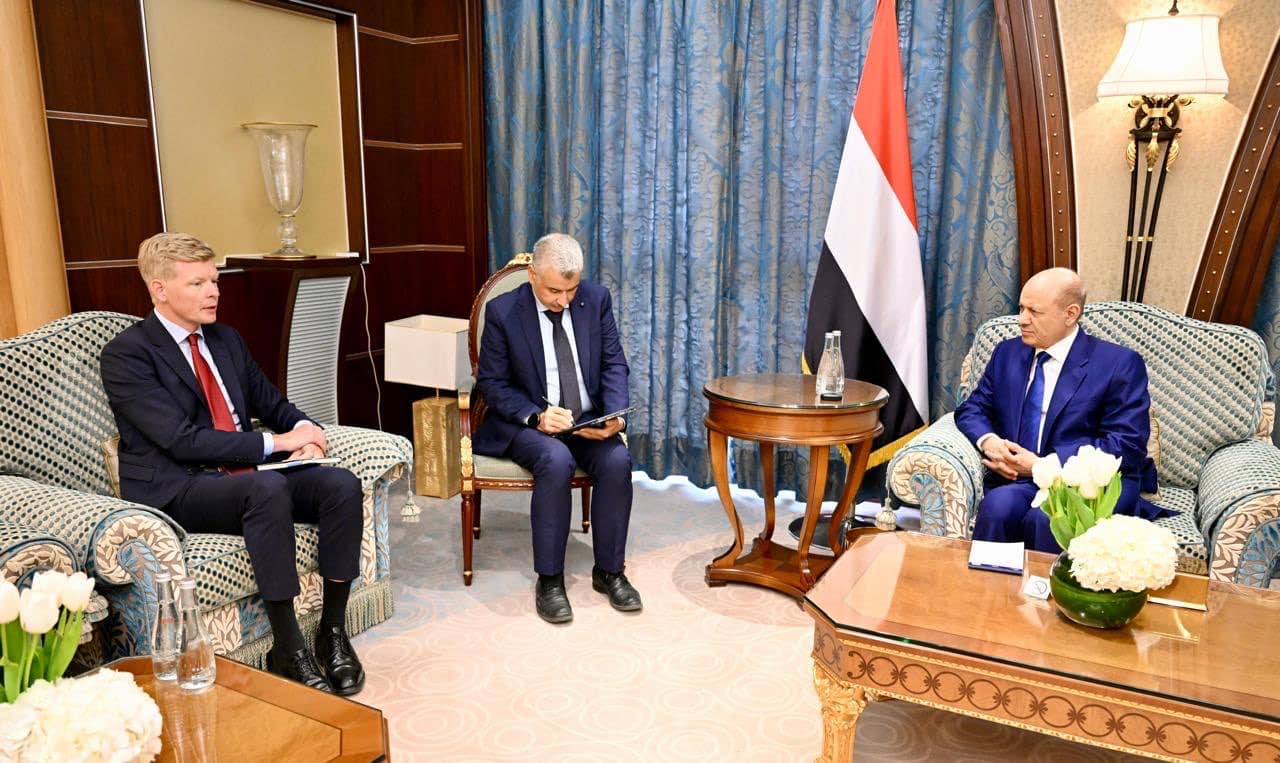Exclusive
President Al-Alimi’s confirmation of the Presidential Council’s commitment to the peace option is a firm stance that does not waver, reflecting the council’s keenness to end the suffering of the Yemeni people and achieve their aspirations for living in peace, security, and stability. This came during the reception of Dr. Rashad Muhammad Alimi, the head of the Presidential Council, the special envoy of the United Nations to Yemen, Mr. Hans Grundberg, on Tuesday, April 23, 2024; he affirmed the council’s strong commitment to the peace option as the only solution to the Yemeni crisis.
During the meeting, President Al-Alimi listened to the detailed explanation from the UN envoy about the results of his recent communications at the national, regional, and international levels, focusing on ways to revive the political process in Yemen.
The priorities discussed by both sides emphasize the need for tangible steps by the Houthi group to build trust and demonstrate their seriousness in peace efforts, including halting their attacks on various fronts and committing to international references. The support of the Presidential Council for the efforts of the Kingdom of Saudi Arabia and the UN envoy sends a strong message confirming the unity of the Yemeni stance in its efforts to achieve peace and alleviate the suffering of the Yemeni people who have been enduring the ravages of war and siege for over nine years; Al-Alimi stressed the importance of the Yemeni government positively engaging with all efforts to achieve peace, based on its strong belief in the importance of a peaceful political solution based on national, regional, and international references, especially Resolution 2216, which represents an ideal roadmap to achieve the aspirations of all Yemenis.
The UN envoy’s briefing on his relentless efforts to revive the political process and the UN’s keenness to play an active role in resolving the Yemeni crisis; Minister of Foreign Affairs and Expatriates Dr. Shayi’ Al-Zindani, on the same day, received the special envoy of the UN Secretary-General to Yemen, Hans Grundberg, in a meeting that discussed the developments on the Yemeni and regional fronts and the efforts to revive the political process under the auspices of the United Nations.
The foreign minister criticized the recent escalatory steps taken by the Houthis, both militarily and economically, considering them as undermining the political process and peace opportunities. He called for a reassessment of the international dealing with the practices of the Houthis, emphasizing the need to stop their violations and push them to seriously engage in a political path. The visit of Grundberg comes amidst the deadlock of political solutions and the increasing intensity of conflict on the ground. His affirmation of the UN’s commitment to reviving the peace process is a glimmer of hope to save the political process in Yemen. His visit will contribute to reinvigorating the political process in Yemen if the Houthis show seriousness in responding to the UN’s efforts.
The situation is likely to remain dependent on the commitment of Yemeni parties to de-escalation and constructive engagement in the peace process. The humanitarian crisis in Yemen remains a top priority, requiring intensive international efforts to alleviate the suffering of the Yemeni people.
In a related context, the US special envoy to Yemen, Tim Lenderking, stressed the need for the participation of the Gulf states as a key element to achieve peace in Yemen and find a diplomatic solution to the long-running civil war in Yemen, which has pitted the internationally recognized government against the Iranian-backed Houthis.
In an interview with The National newspaper, he said: “The Gulf states play a pivotal role in supporting peace efforts in Yemen, and their participation is necessary to achieve any progress in a diplomatic solution.” He emphasized the commitment of the United States to facilitate and support the peace process, calling for regional cooperation to do so, and that the United States is doing everything in its power to achieve this.
Lenderking also clarified that the actions of the Houthis, including their attacks on international shipping in the Red Sea, pose significant obstacles to the peace process. He described the Houthi attacks as risky, reckless, and random behavior, warning of the peace process turning into “side effects” amid a wider regional conflict.
Lenderking’s statements reflect the US concern about the ongoing conflict in Yemen and its impact on regional stability. His call for Gulf countries’ participation underscores the US recognition of their importance in resolving the Yemeni crisis. He highlights the role of the Houthis as a major obstacle to peace, calling for an end to their attacks on international shipping. Achieving peace in Yemen depends on the participation of Gulf countries, in addition to a comprehensive diplomatic solution to the conflict under international sponsorship. The United States demonstrates its commitment to supporting diplomatic efforts and achieving stability in the region.

